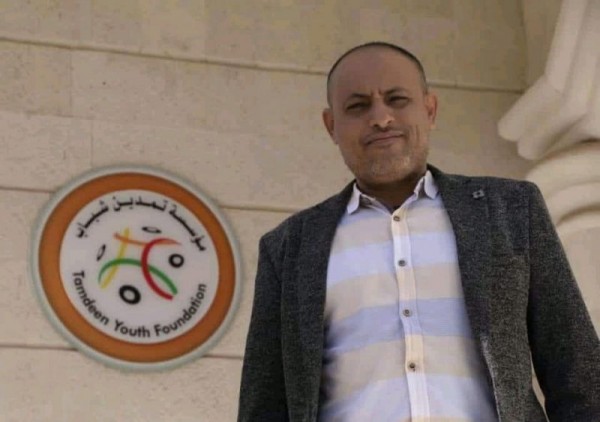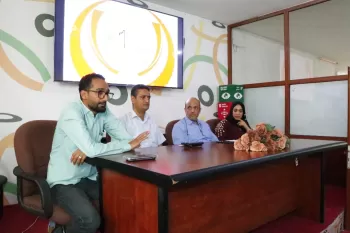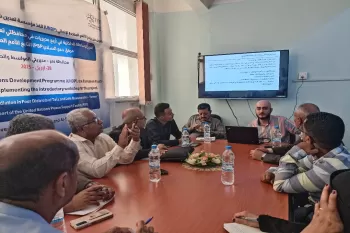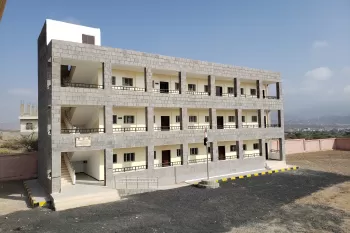6 years of war and escalating conflict, Yemen is still facing an unprecedented humanitarian and economic crisis. A terrible situation of destruction, loss and lack of livelihood for the majority of the population in Yemen.
It is time to reassess the humanitarian response in Yemen
Despite the efforts of humanitarian agencies and organizations to alleviate suffering and provide basic requirements, it is time to reassess the humanitarian response in Yemen and to launch new and innovative programs that integrate the roles and responsibilities of donors, the governments of Sana’a and Aden, international and local organizations and the private sector to link humanitarian assistance to economic recovery and social cohesion, and to build peace with development and sustainable solutions.
Projects in the field of livelihood improvement and economic recovery are implemented randomly, not as part of a comprehensive and orderly process, with limited scope and low results. Therefore, all parties concerned about the humanitarian and economic situation in Yemen must agree on a clear framework that would place the country on the path to sustainable peace and development and work together on measures and development programs to combat poverty and achieve the internationally agreed development goals.
Also through my daily dealings with humanitarian actors, the public and private sectors and local communities and for an effective and sustainable response, I propose the following:
Sensing responsibility, through my humanitarian and development work for years, being at the heart of society, living with the concerns and aspirations of the groups most affected by war and conflict, and also through my daily dealings with humanitarian actors, the public and private sectors and local communities and for an effective and sustainable response, I propose the following:
The formation of an independent economic council, comprising technocratic economic figures and representatives of civil society organizations and the public and private sectors, with a mandate to formulate public policies that meet the requirements of the phase.
Agreement on measures to end the division of key State institutions that play a separate role in Yemen’s economy, including the Central Bank of Yemen, which will pay employees’ salaries, receive national revenues and provide liquidity to the private sector.
Directing humanitarian assistance towards restoring livelihoods, promoting capacity to meet current and future challenges and laying the basis for long-term development.
Localizing humanitarian action in Yemen and activating international agreements in this regard.
Promoting the purchasing power of affected communities, while restoring community infrastructure through temporary employment opportunities and cash-for-work.
Prior to launching calls for project proposals, donors should consult with local organizations and stakeholders to identify priorities and put interventions in context.
Activating social responsibility programs for the private sector and companies in Yemen, and financing proposals for local organizations to generate innovative solutions to meet local needs.
Enabling local organizations to participate in policy development by linking humanitarian efforts to economic recovery and peace-building.
Reforming of the business environment of the private sector, reviewing the tax and customs collection mechanism, expanding the role of the private sector in recovery, economic empowerment and implementing reconstruction with a transparent and good governance mechanism.
Rehabilitating existing technical and professional institutes and colleges in order to adapt their output to the requirements of the labor market.
Supporting medium, small and micro enterprises, financing projects for the empowerment of young people and women and marketing their products.
Rehabilitating health facilities, promoting and developing local pharmaceutical industry, and providing incentives and benefits to encourage private sector investment.
Supporting Yemeni farmers to restore their livelihoods through sustainable agricultural solutions.
Facilitating imports and investments in renewable and alternative energy.
Supporting fish sector in fishing and processing, exporting, logistics and international marketing.
In conclusion:
I reiterate that the phase requires a qualitative shift in concepts, ideas and programs on humanitarian assistance. It also requires to work together to build resilience in local communities, to launch a recovery and economic empowerment phase that will pave the way for peace, and to help Yemenis overcome adversity and pain to create their bright future.
Hussein Al-Suhaily
Chairman of Tamdeen Youth Foundation




